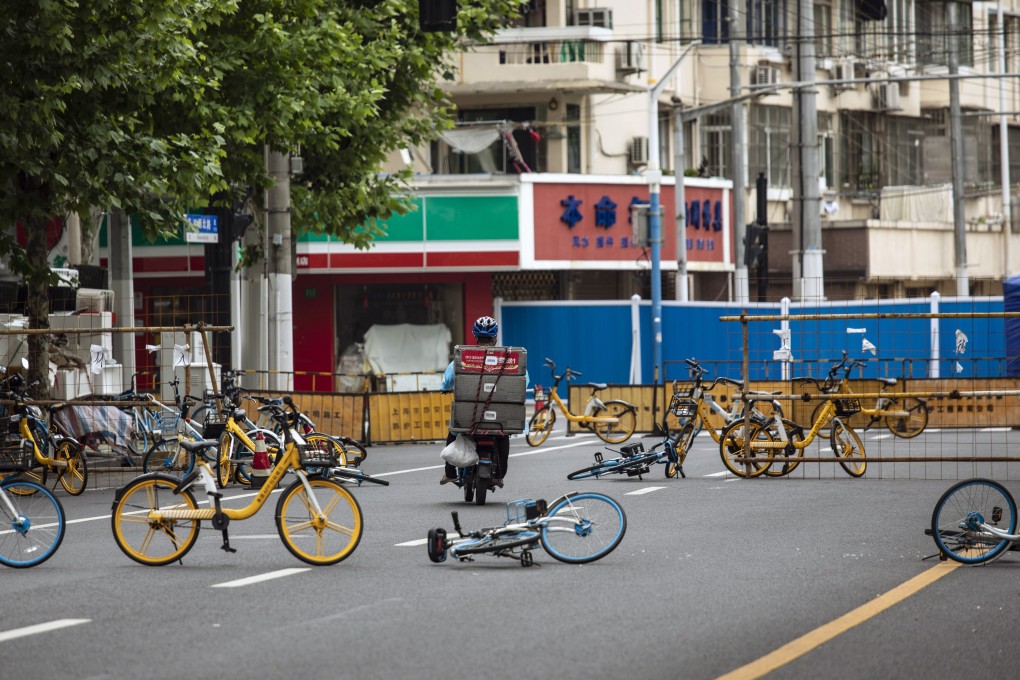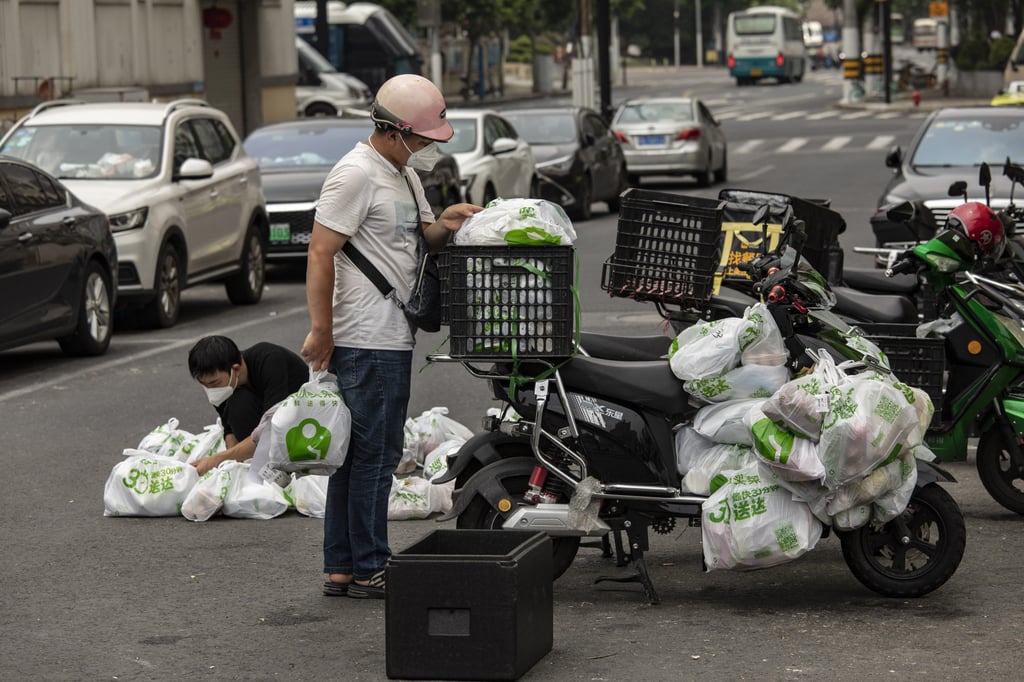China’s internet on-demand services tumble the most in years amid Covid lockdowns, economic headwinds
- Income from on-demand services provided by China’s internet companies dropped over 20 per cent between January and April
- China’s once-booming internet sector has been hit by a double whammy: Beijing’s tech crackdown and Covid-19 prevention measures

Consumer spending for on-demand services provided by China’s internet companies saw its sharpest decline on record, according to government data released on Monday, as strict lockdowns and deepening economic woes dampen demand.
Income from local lifestyle services, ride-hailing, tourism, finance, car rentals and home rentals for internet companies dropped 20.2 per cent to 118 billion yuan (US$17.7 billion) from January to April, according to data compiled by the Ministry of Industry and Information Technology.
The decline stood in sharp contrast to growth of 63.1 per cent during the same period in 2021 and a moderate fall of 8.3 per cent in the first fourth months of 2020, making 2022 the worst year since the data became available in 2019.
“The drop is consistent with the general retail sales trend,” said Hong Hao, an economist who headed the research team at Bocom International, the investment banking arm of the Bank of Communications. “In April, China’s retail sales fell 11 per cent. Zero tolerance [of Covid cases] restricted mobility and affected confidence.”

China’s once-booming internet sector has been hit by a double whammy: Beijing’s tech crackdown since late 2020 and, more recently, Covid-19 prevention measures that have hindered business operations and consumers’ mobility.